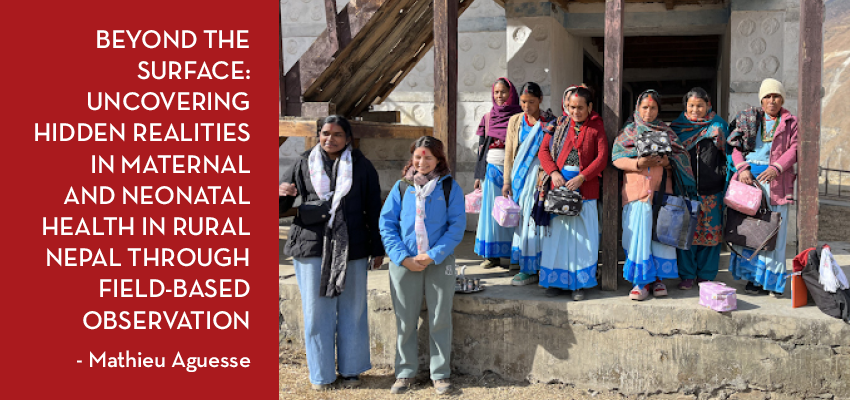
Abstract
In rural Nepal, maternal and neonatal health outcomes are shaped by more than policy or infrastructure—they are shaped by culture, geography, trust, and silence. This white paper presents findings from a comprehensive needs assessment conducted by MIT D-Lab students and the National Innovation Center (NIC) Nepal, under the active supervision of Mathieu Aguesse, MIT instructor. The study aimed not just to collect data, but to uncover insights that often go unspoken: the systemic gaps, informal behaviors, and quiet truths that impact healthcare access and quality.
Our mission was not simply to identify needs, but to understand the deeper dynamics at play in how maternal and neonatal care is experienced, delivered, and perceived. We deployed a diverse suite of methods—ranging from qualitative interviews to scenario-based forecasting, from fly-on-the-wall observation to participatory journaling, and from photo elicitation to real-time environmental sampling. Each of these tools was chosen not only for its technical merit, but for its ability to surface insights that are otherwise invisible—insights that reside in emotions, habits, contradictions, and everyday routines.
This report goes beyond findings. It serves as a field manual for researchers, designers, and development professionals interested in applying immersive, human-centered research techniques in low-resource settings. Each methodology is presented with narrative context, strategic rationale, and concrete field anecdotes that highlight its strengths—and its limitations. The hope is that by sharing both what we learned and how we learned it, others can adapt, scale, and refine these tools for their own settings.

